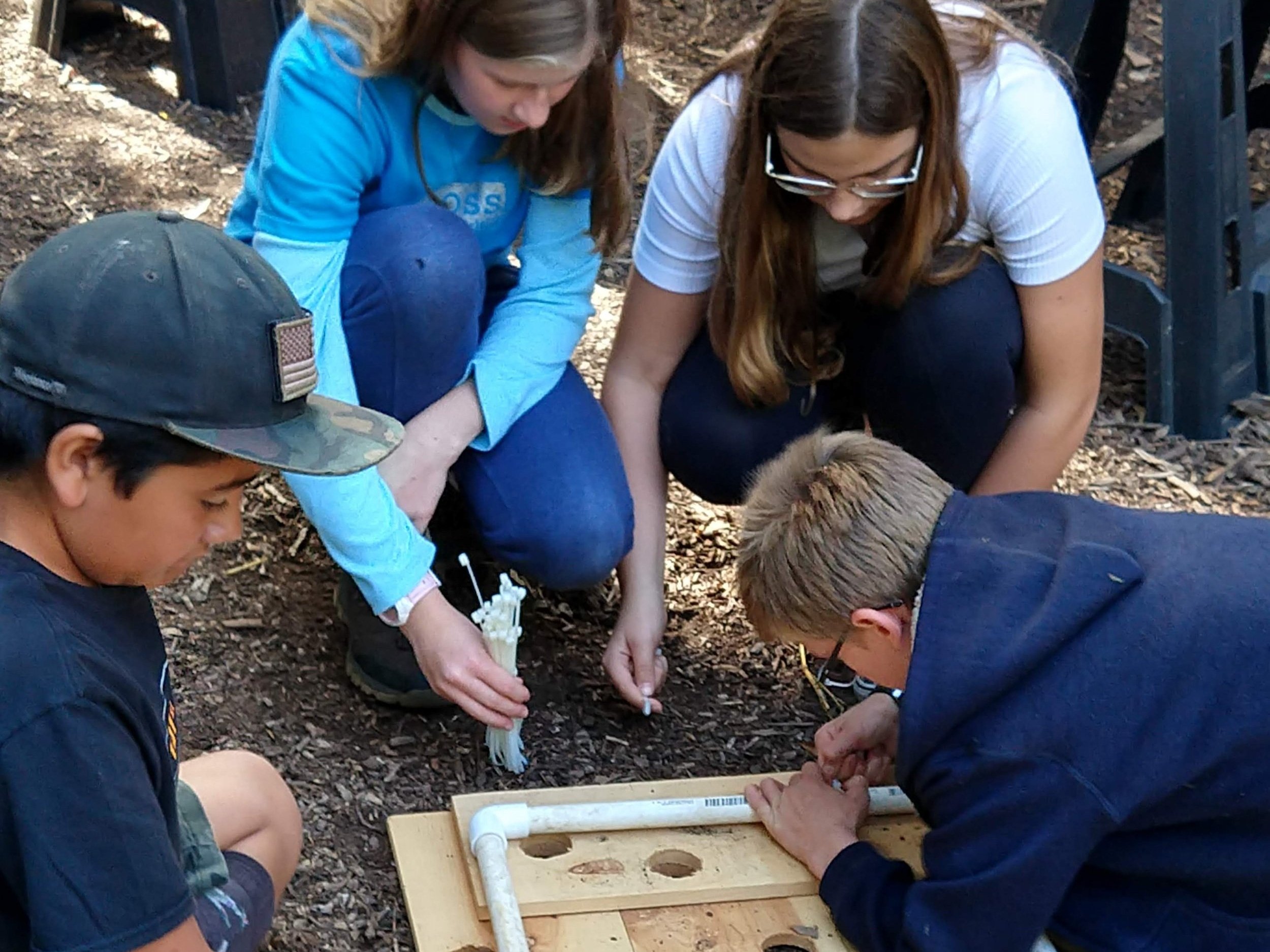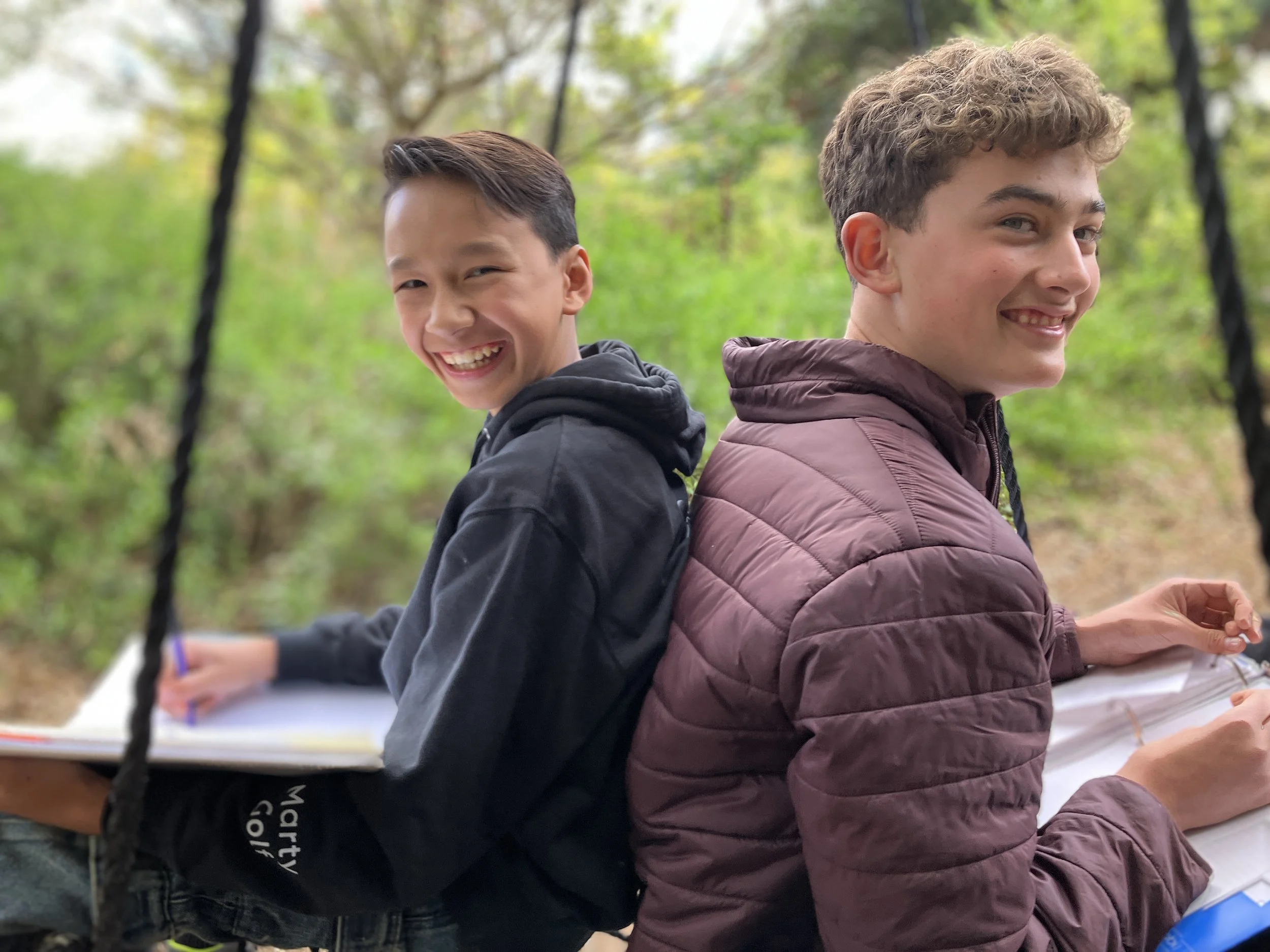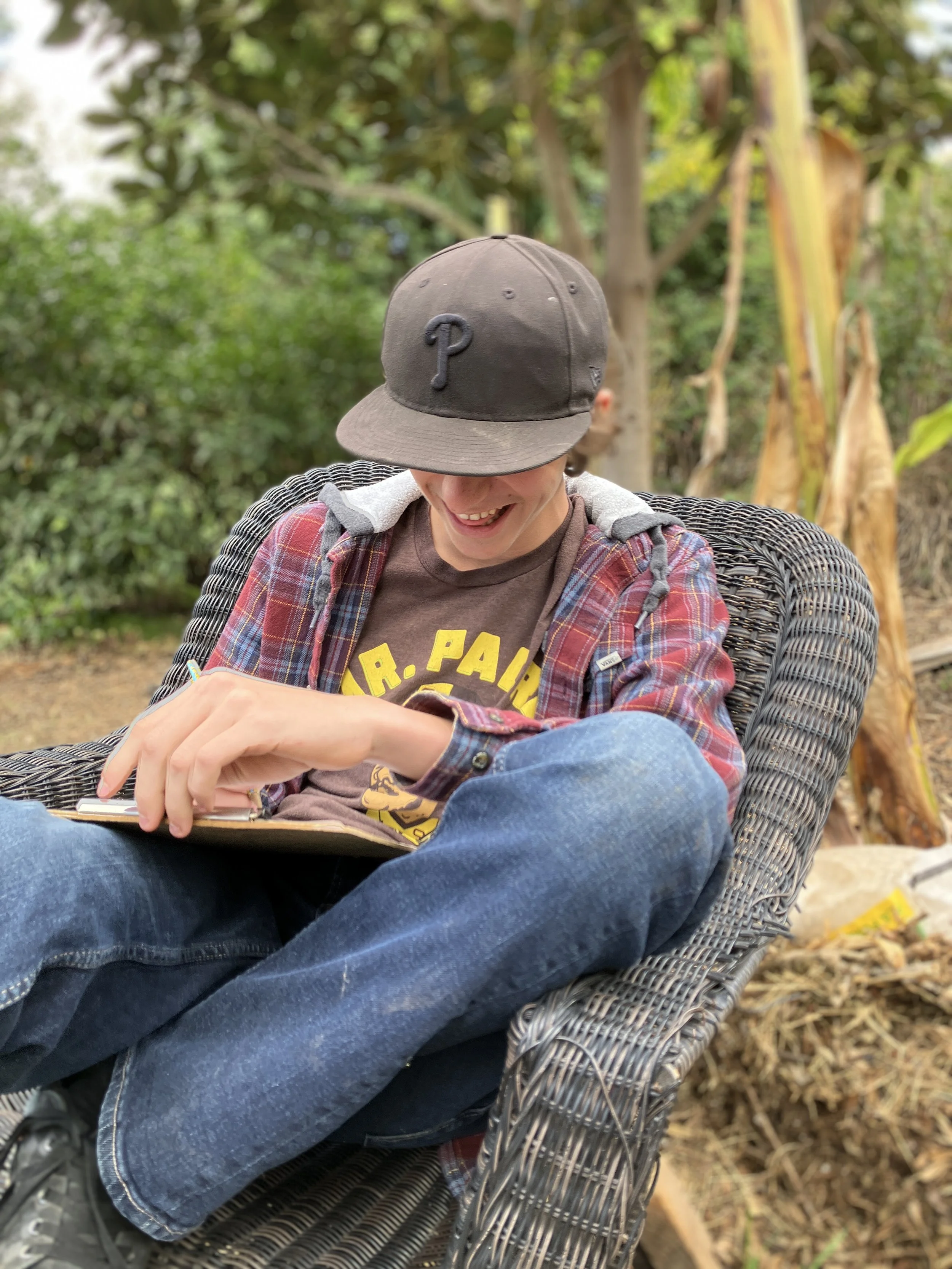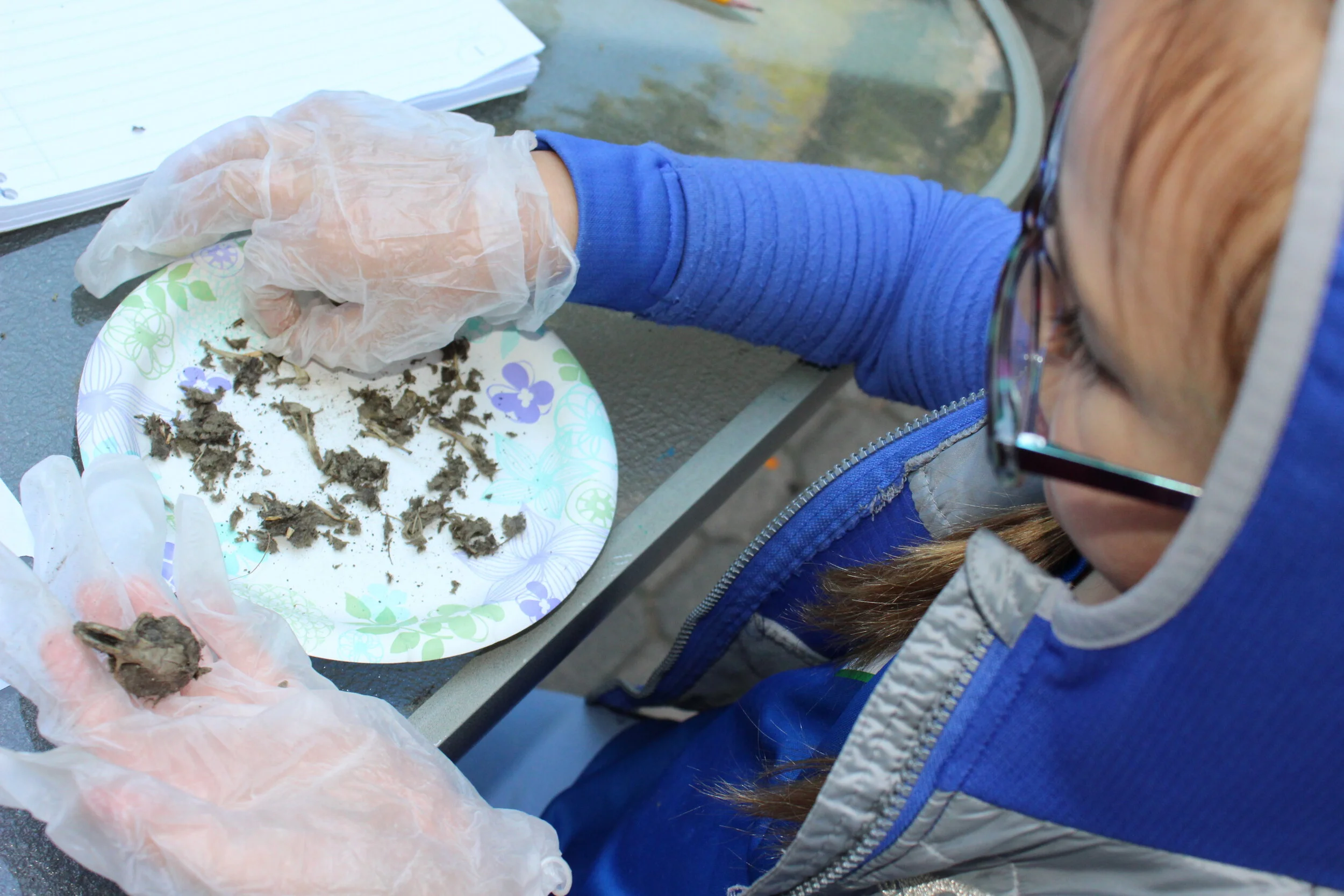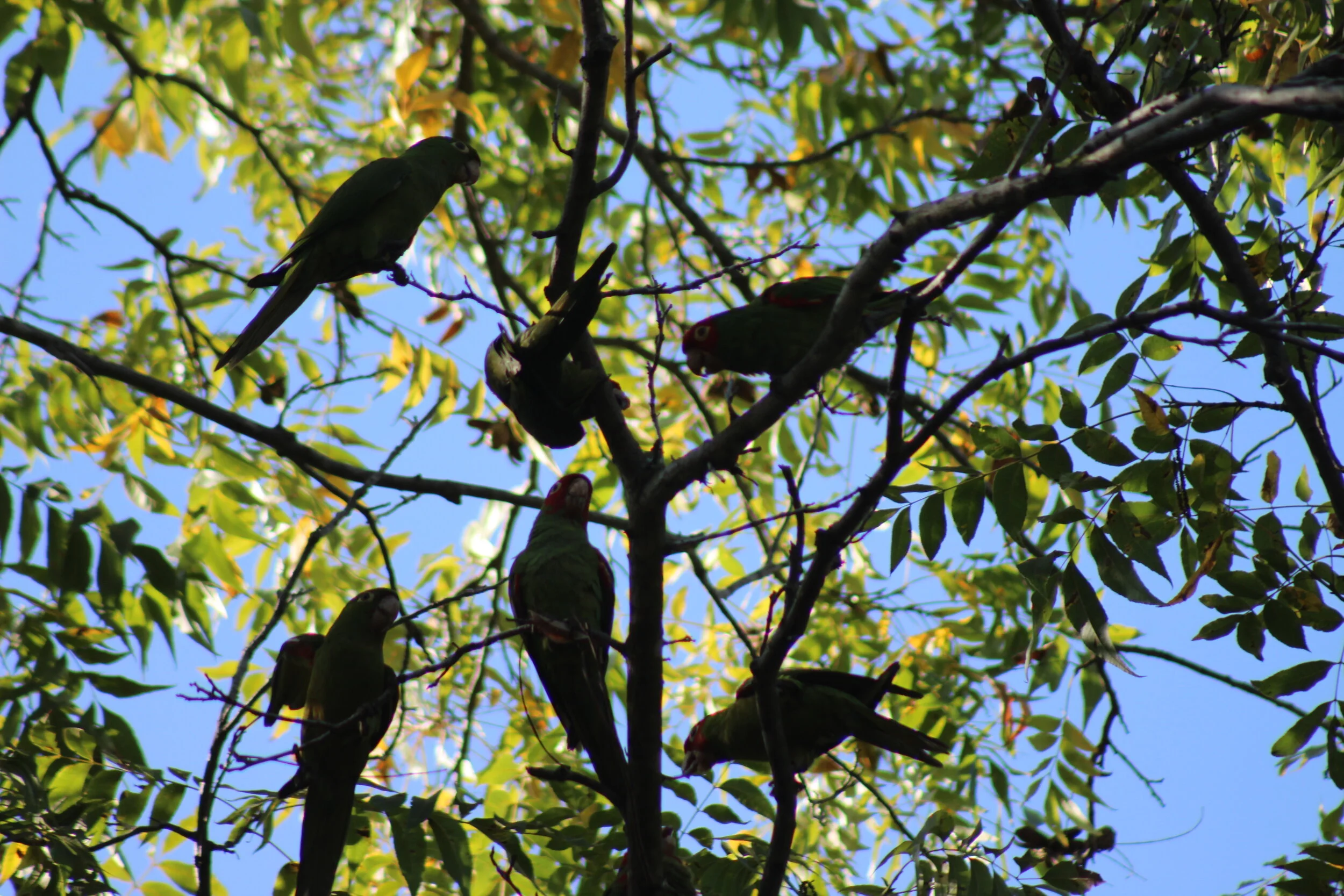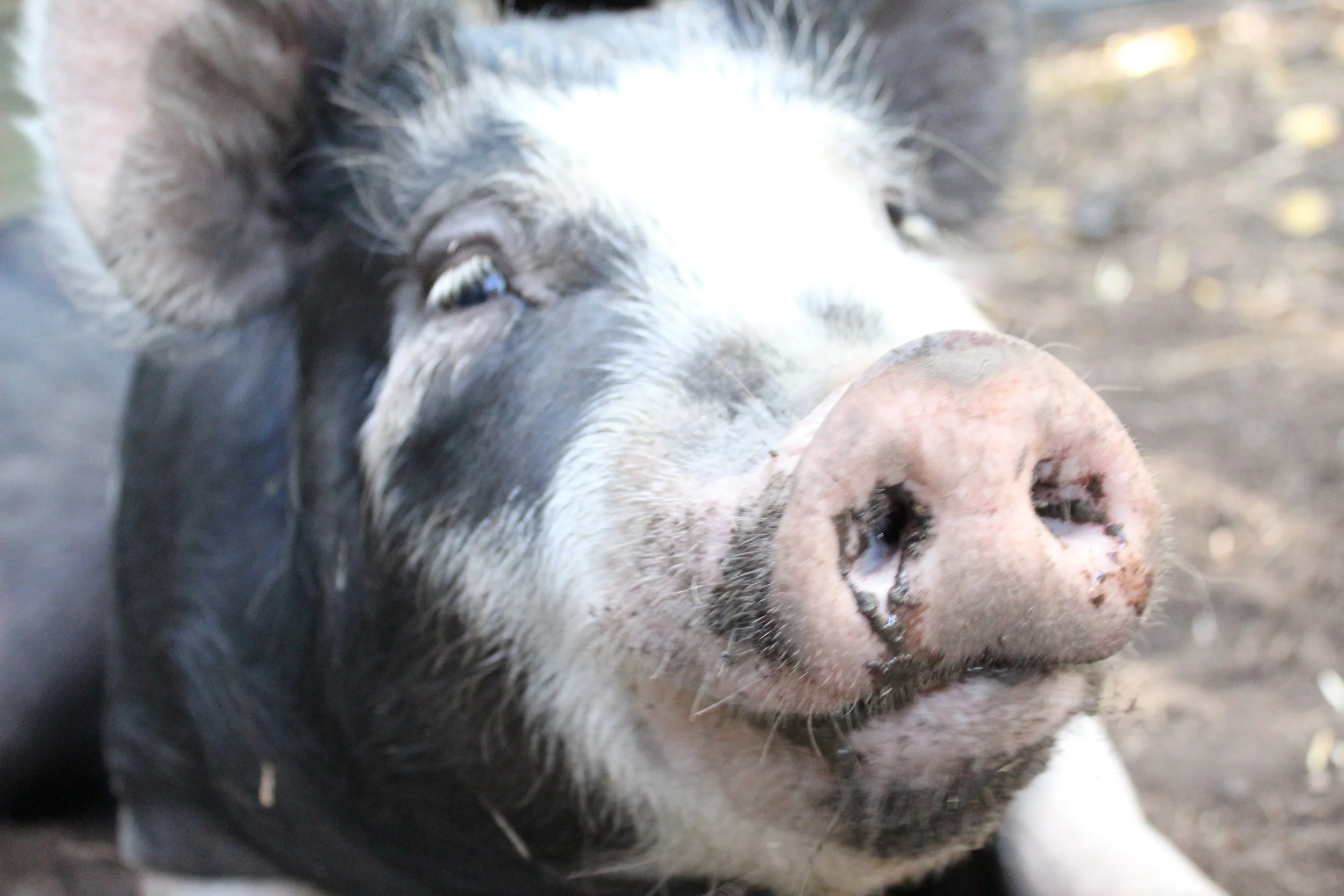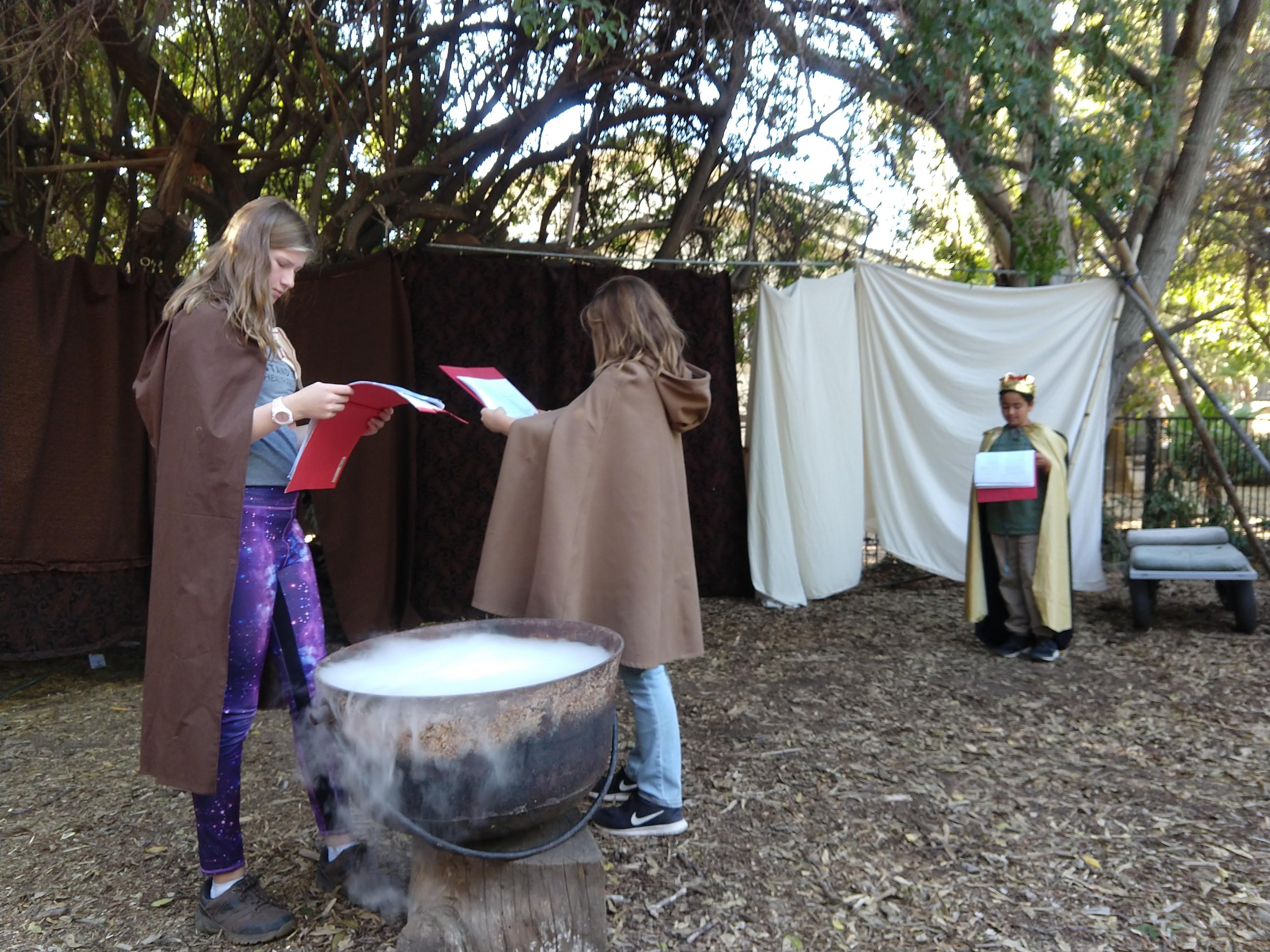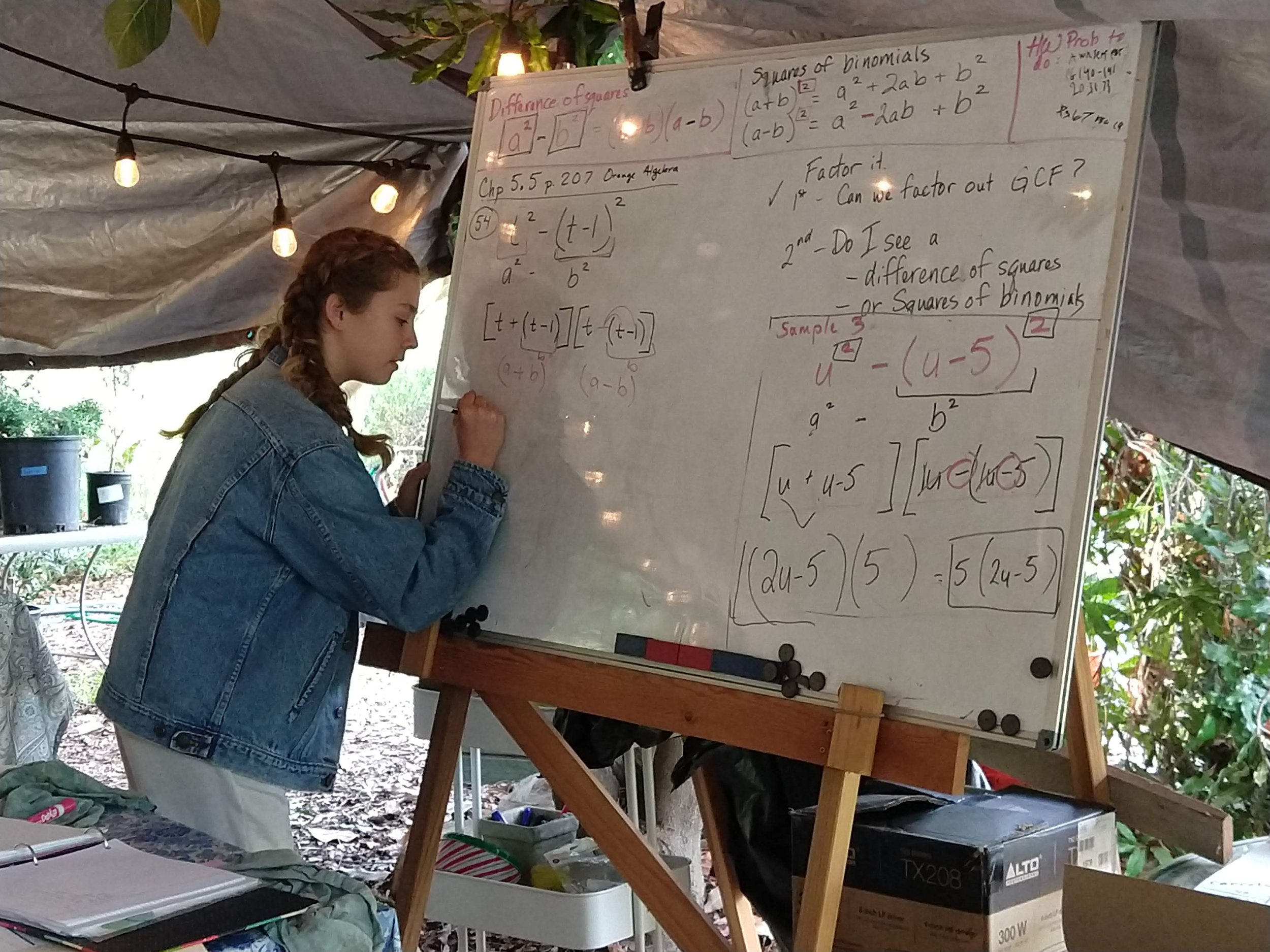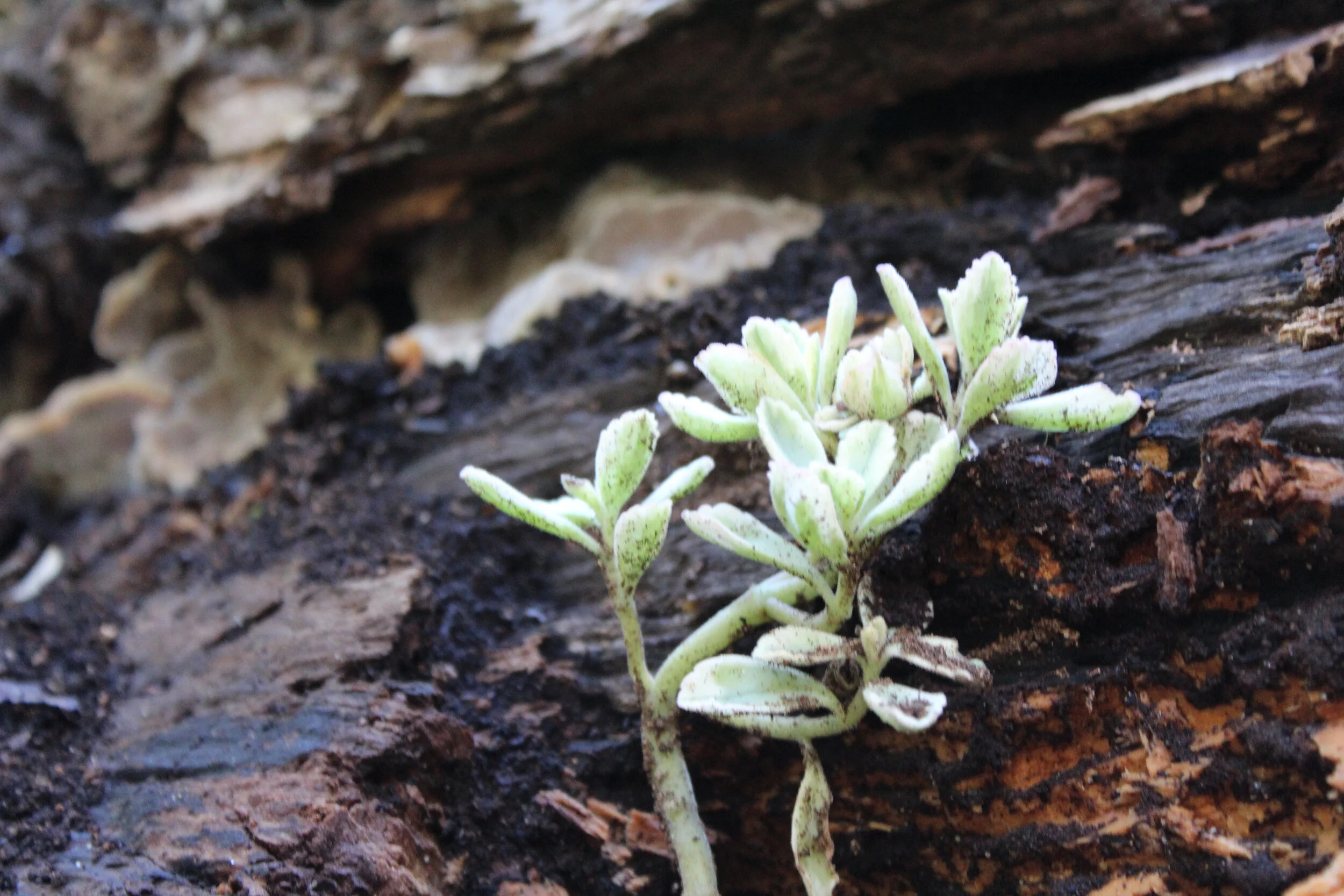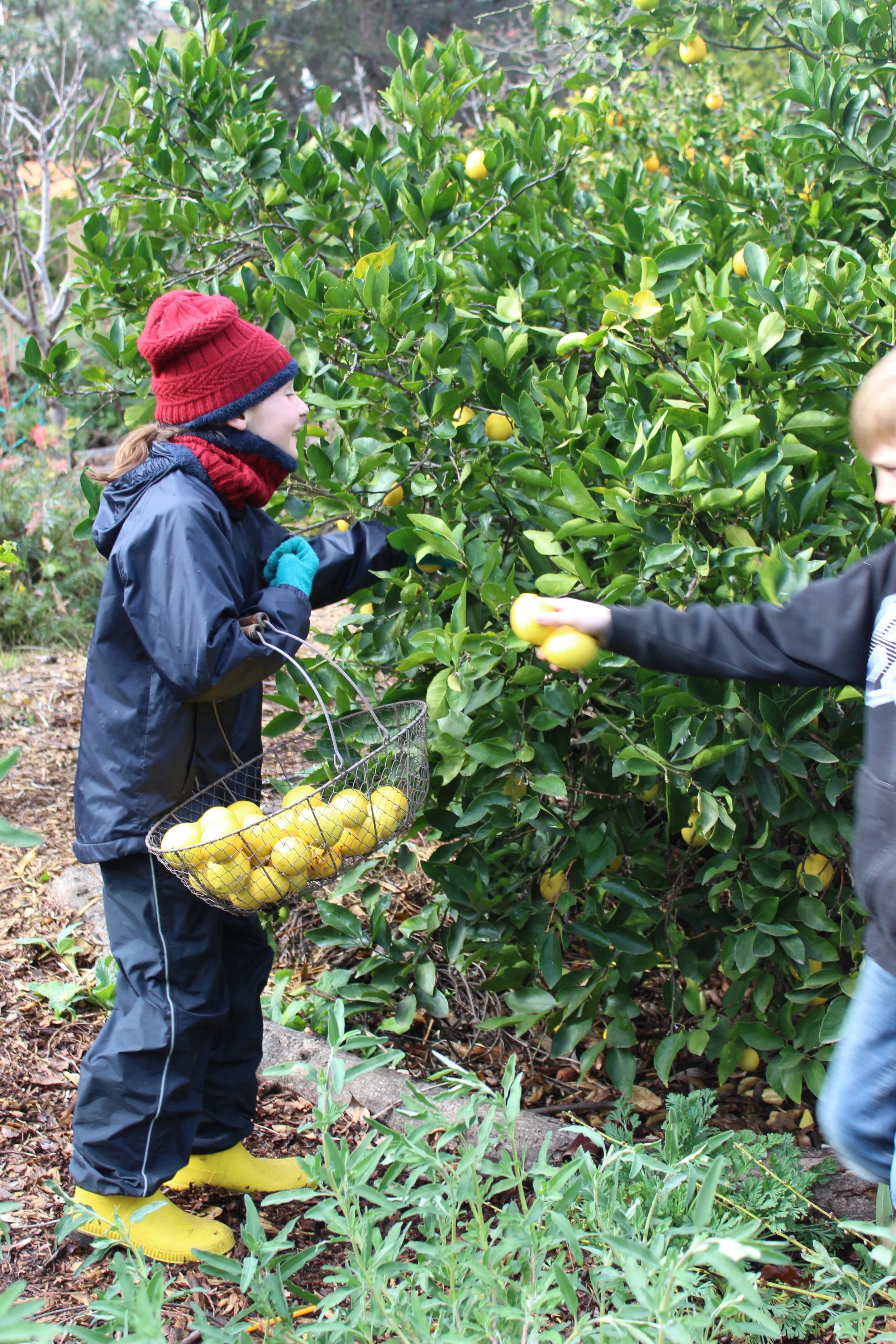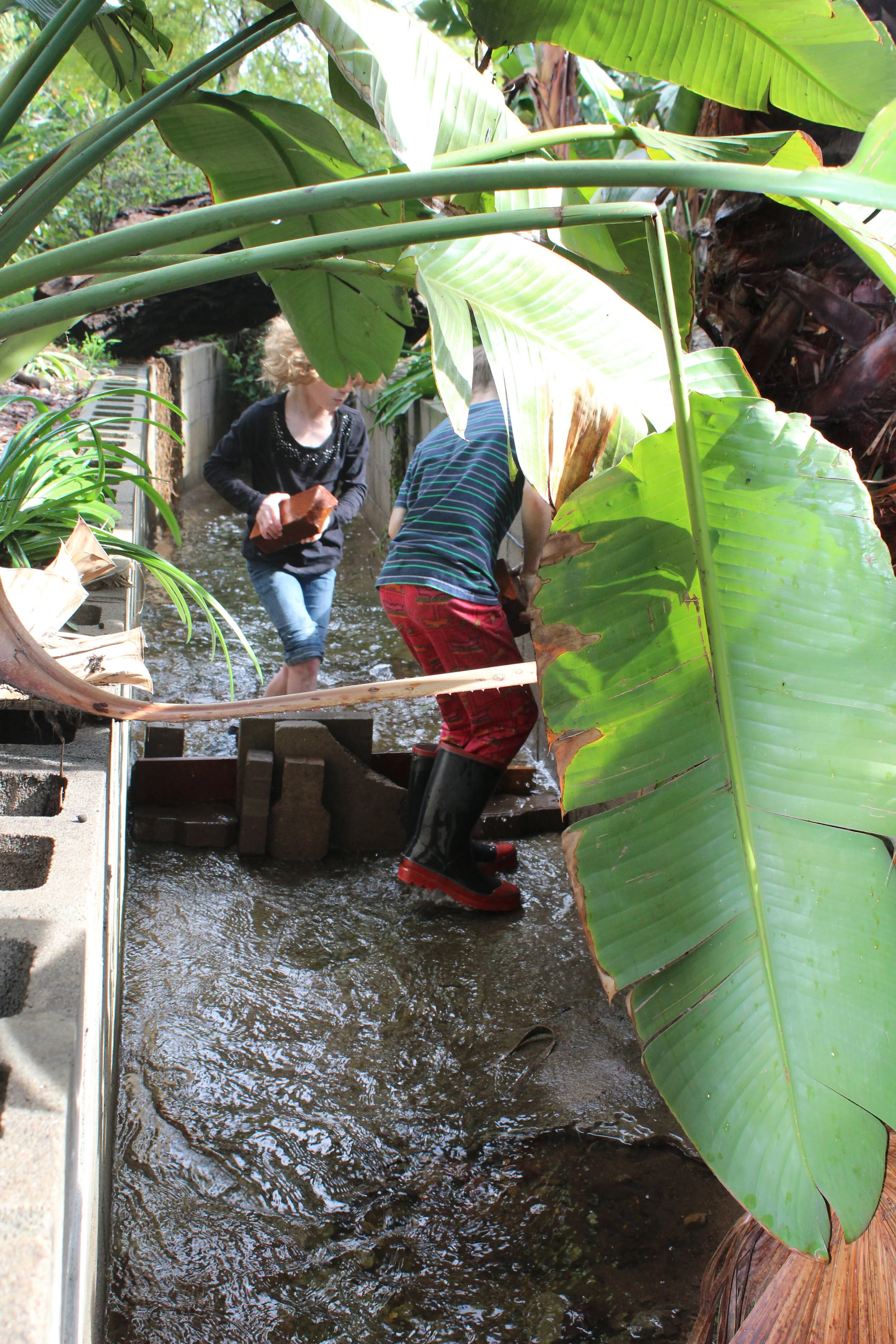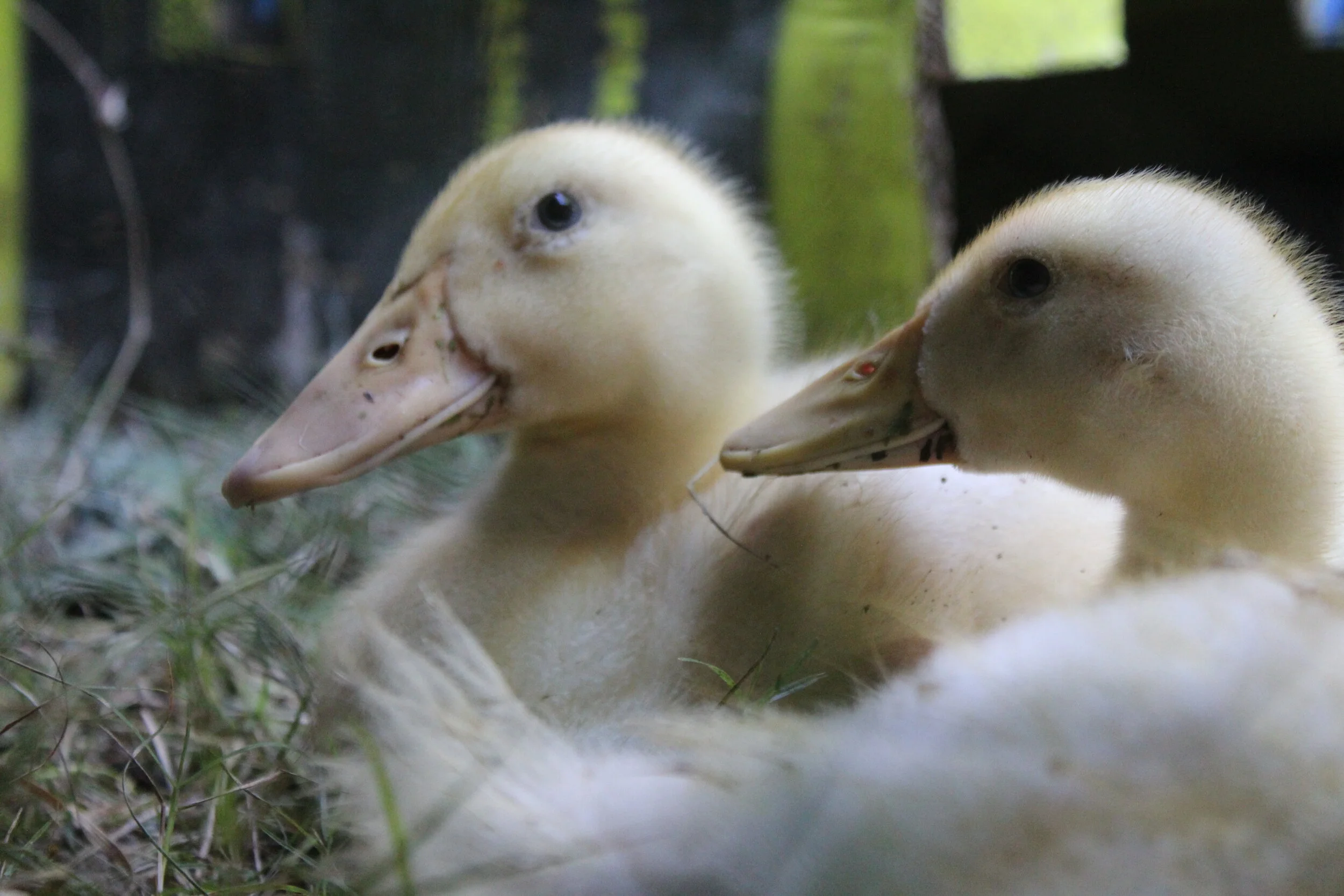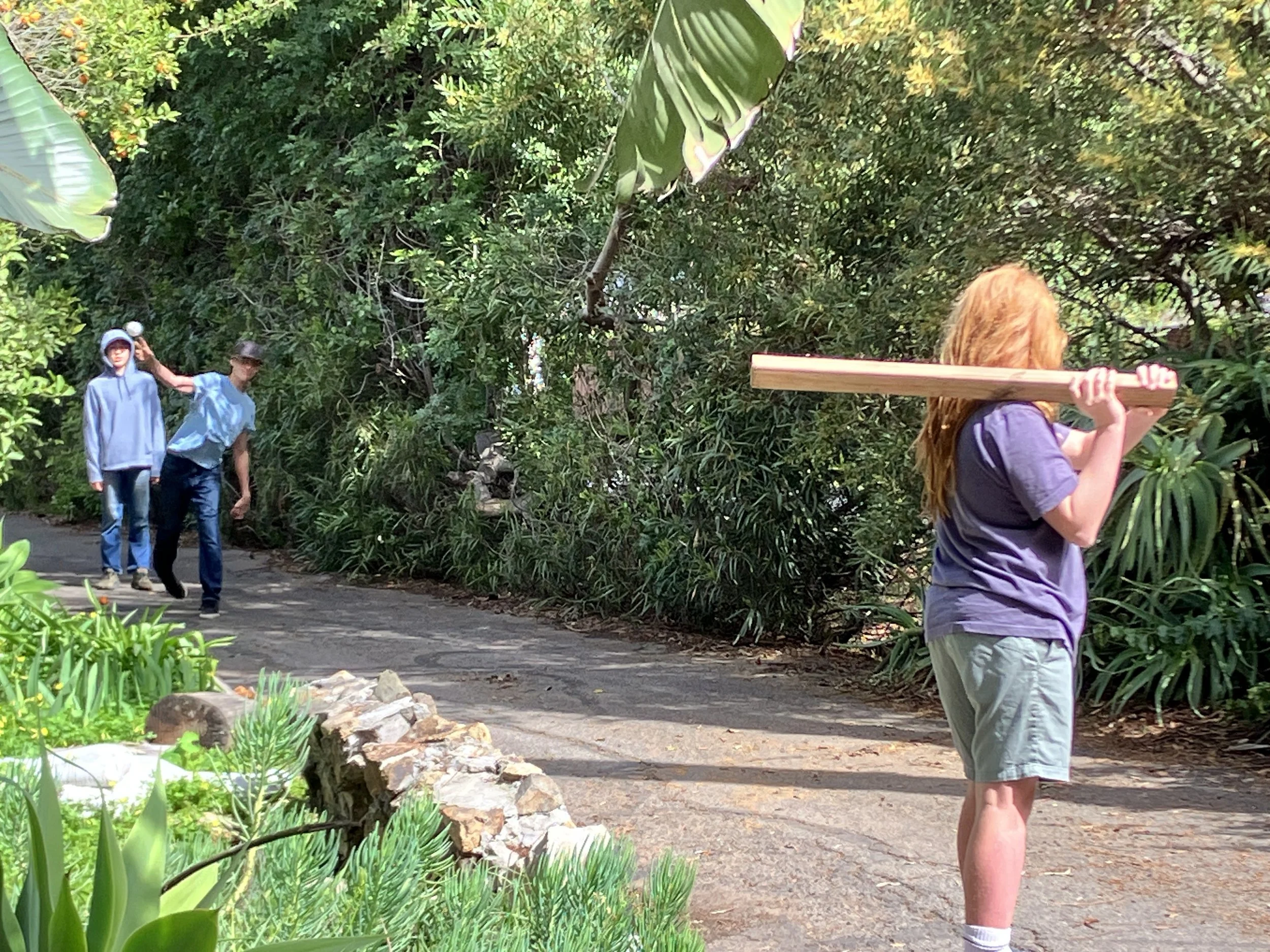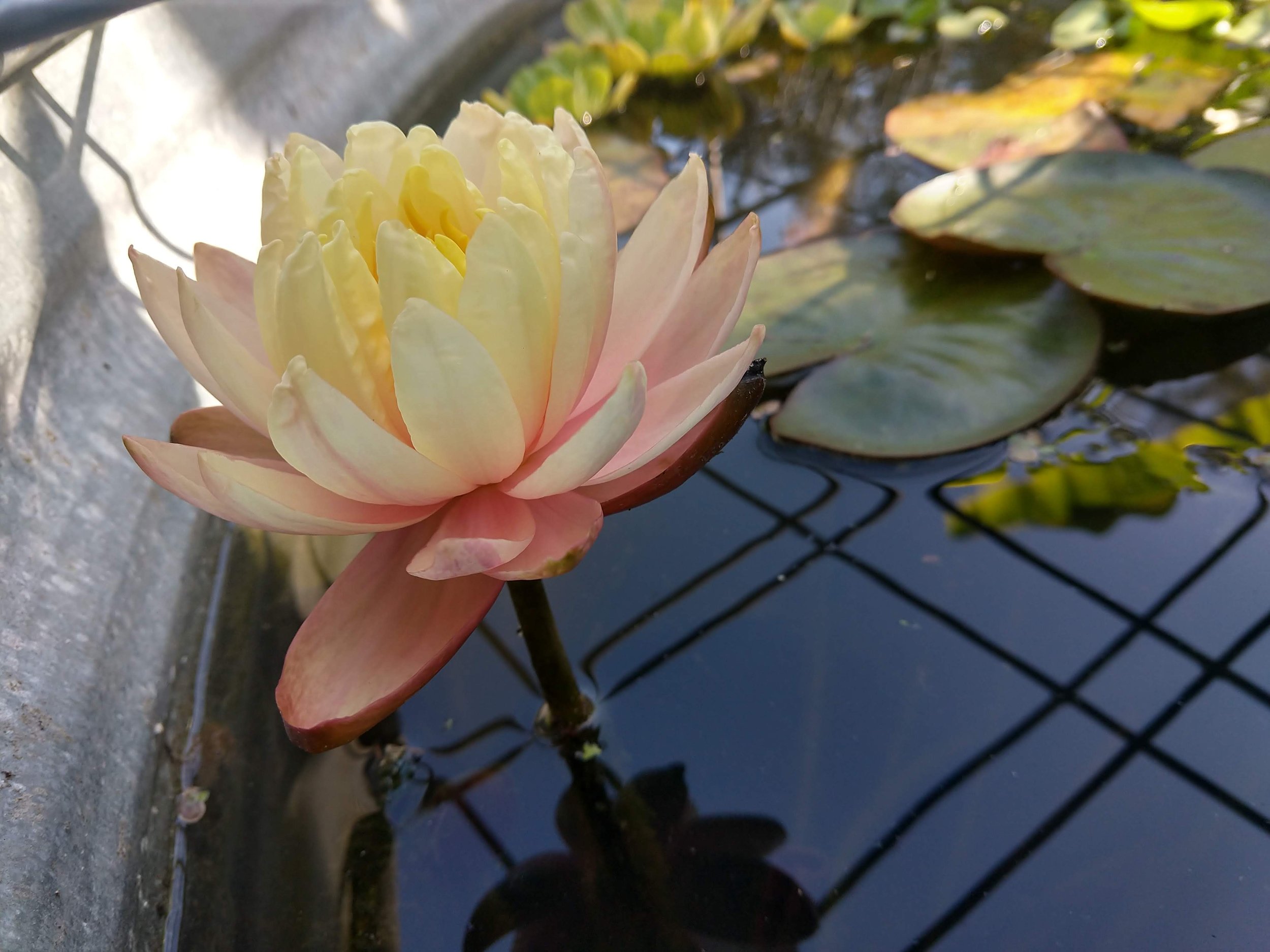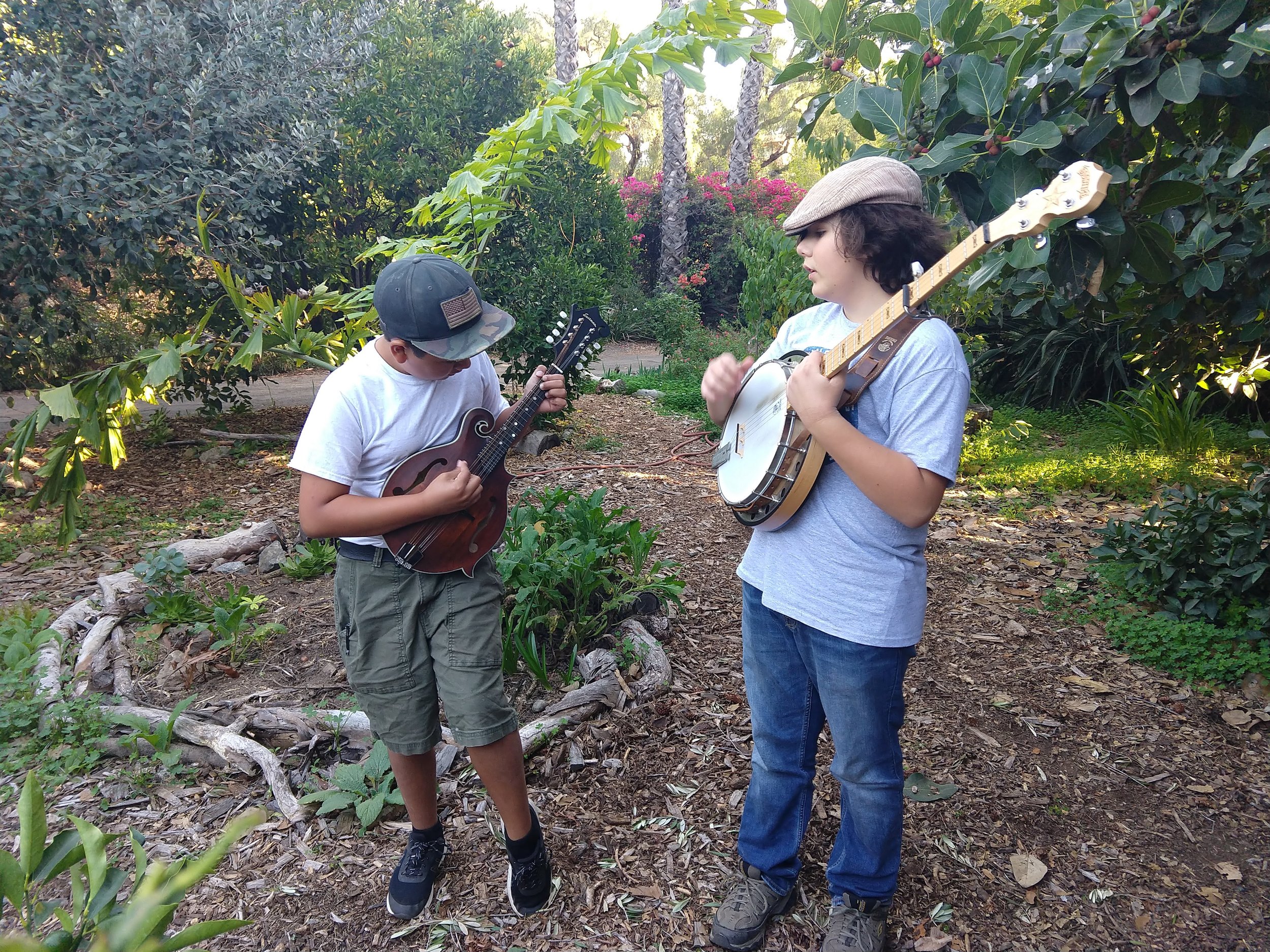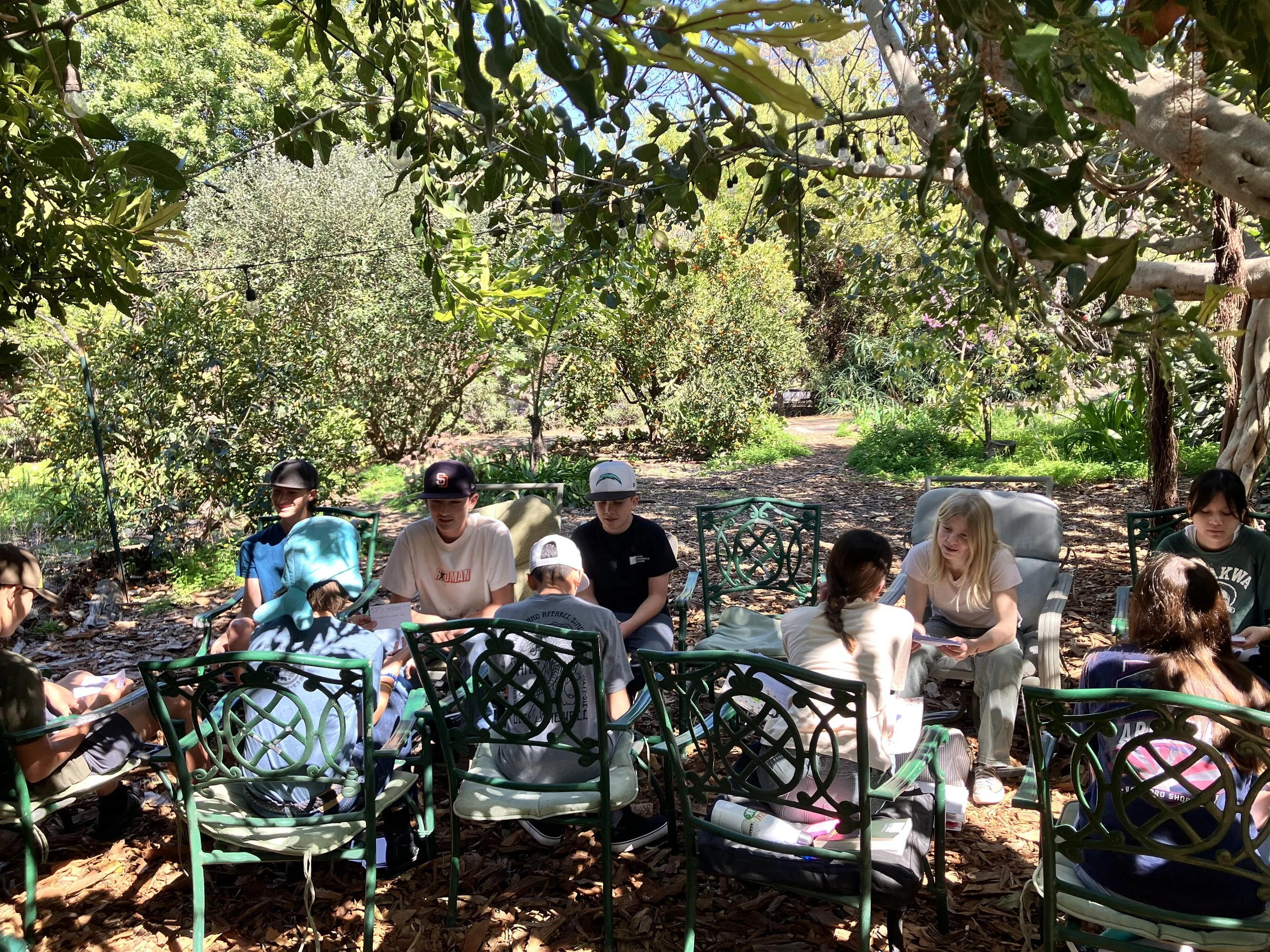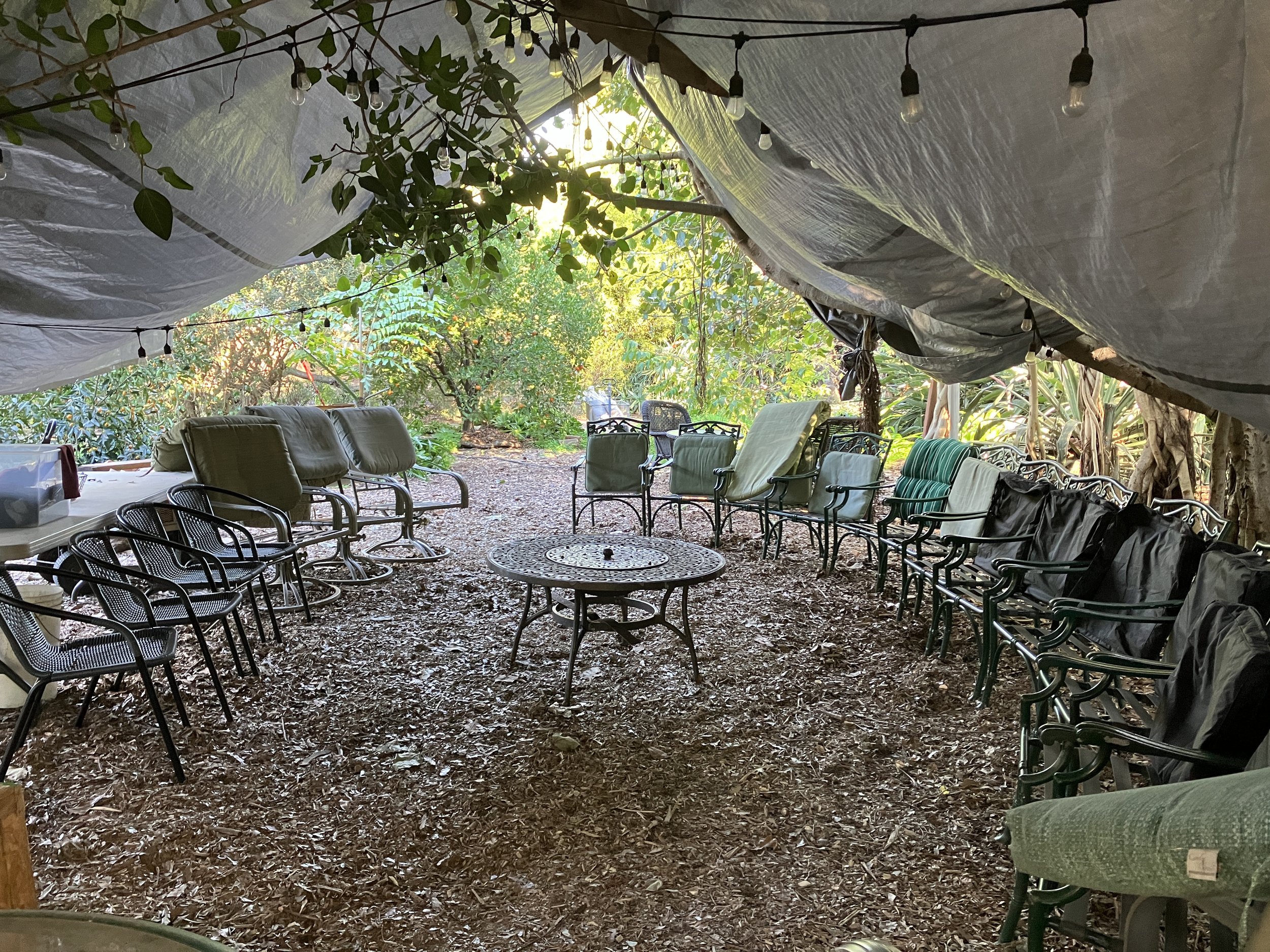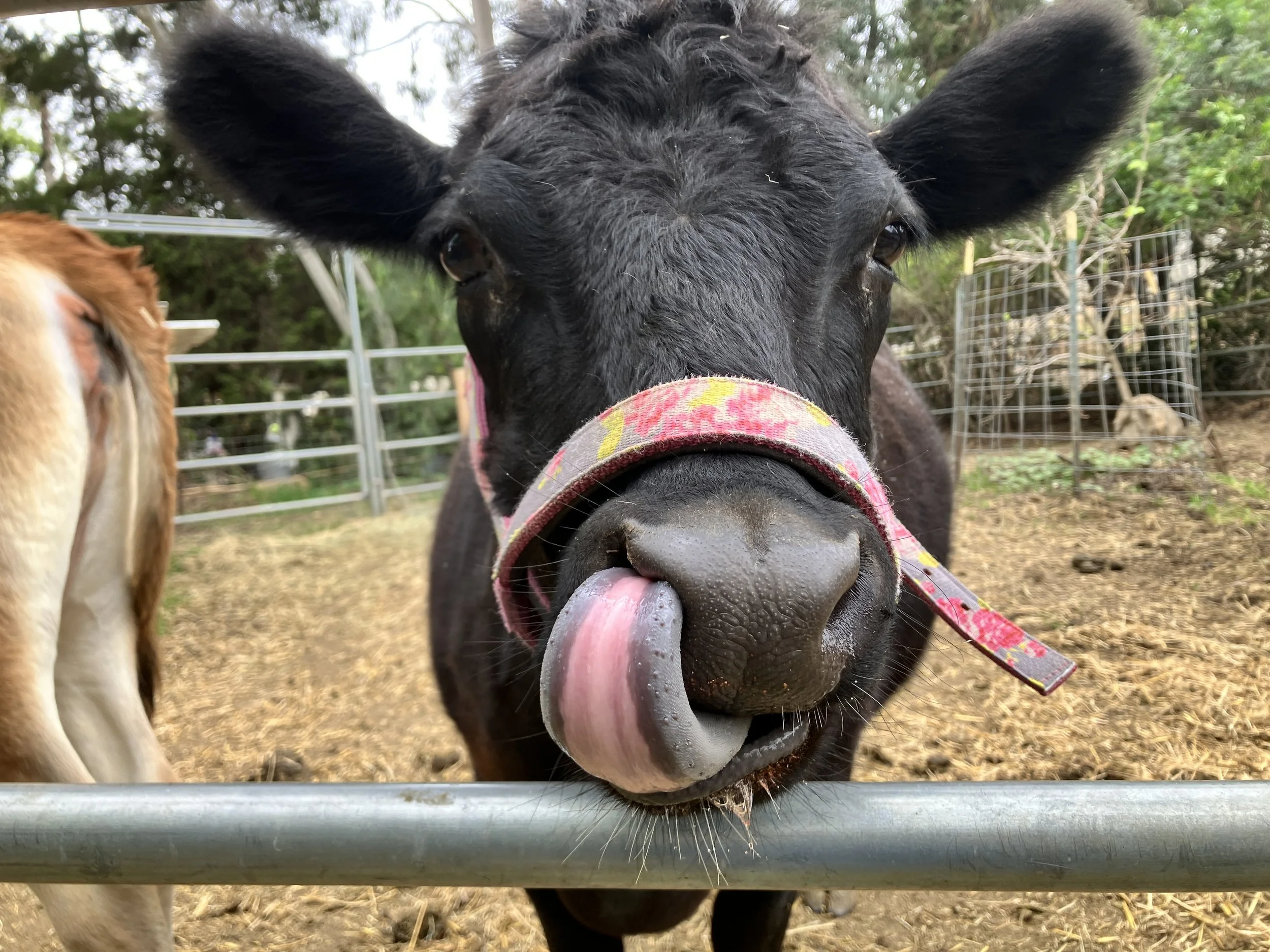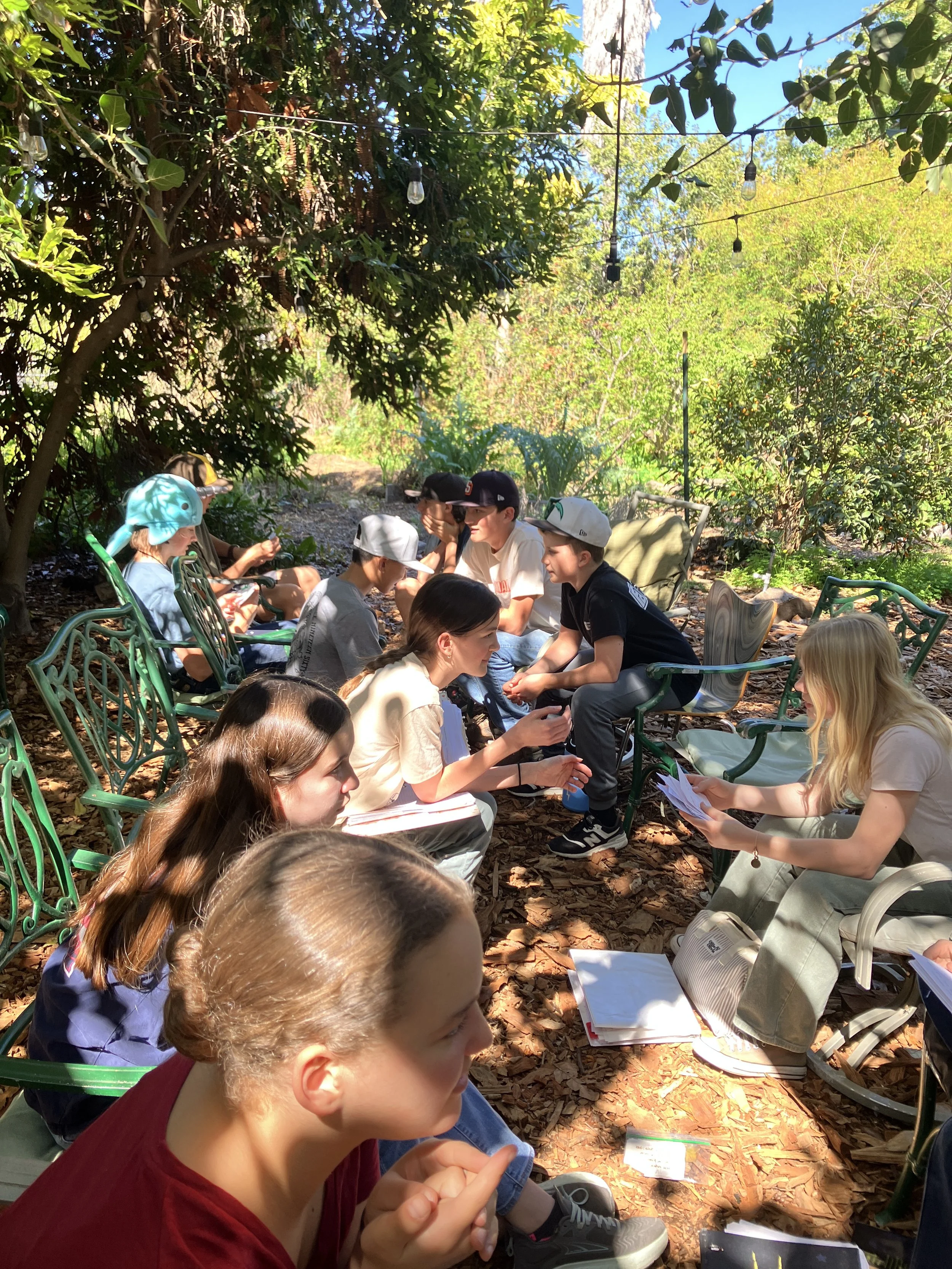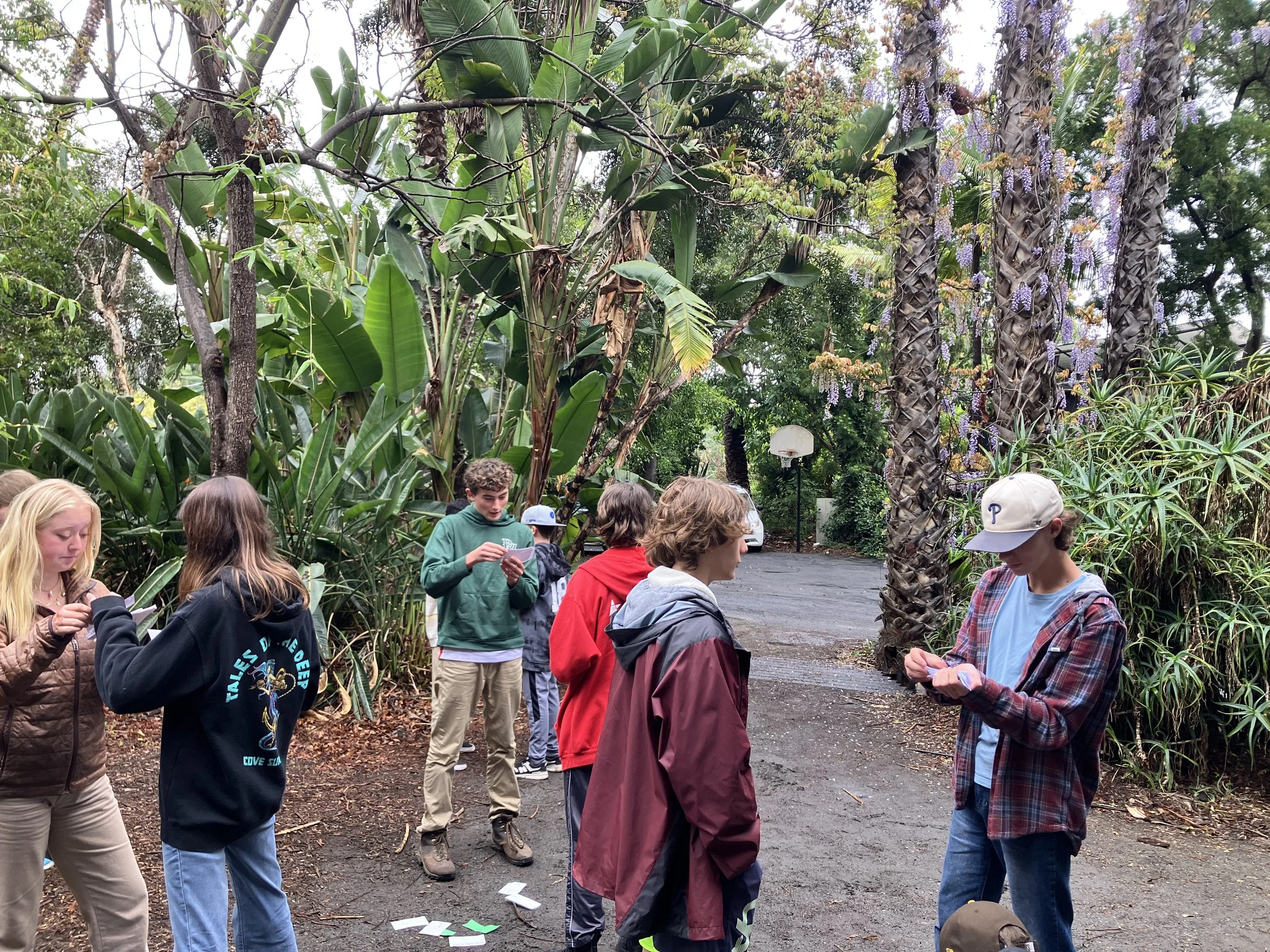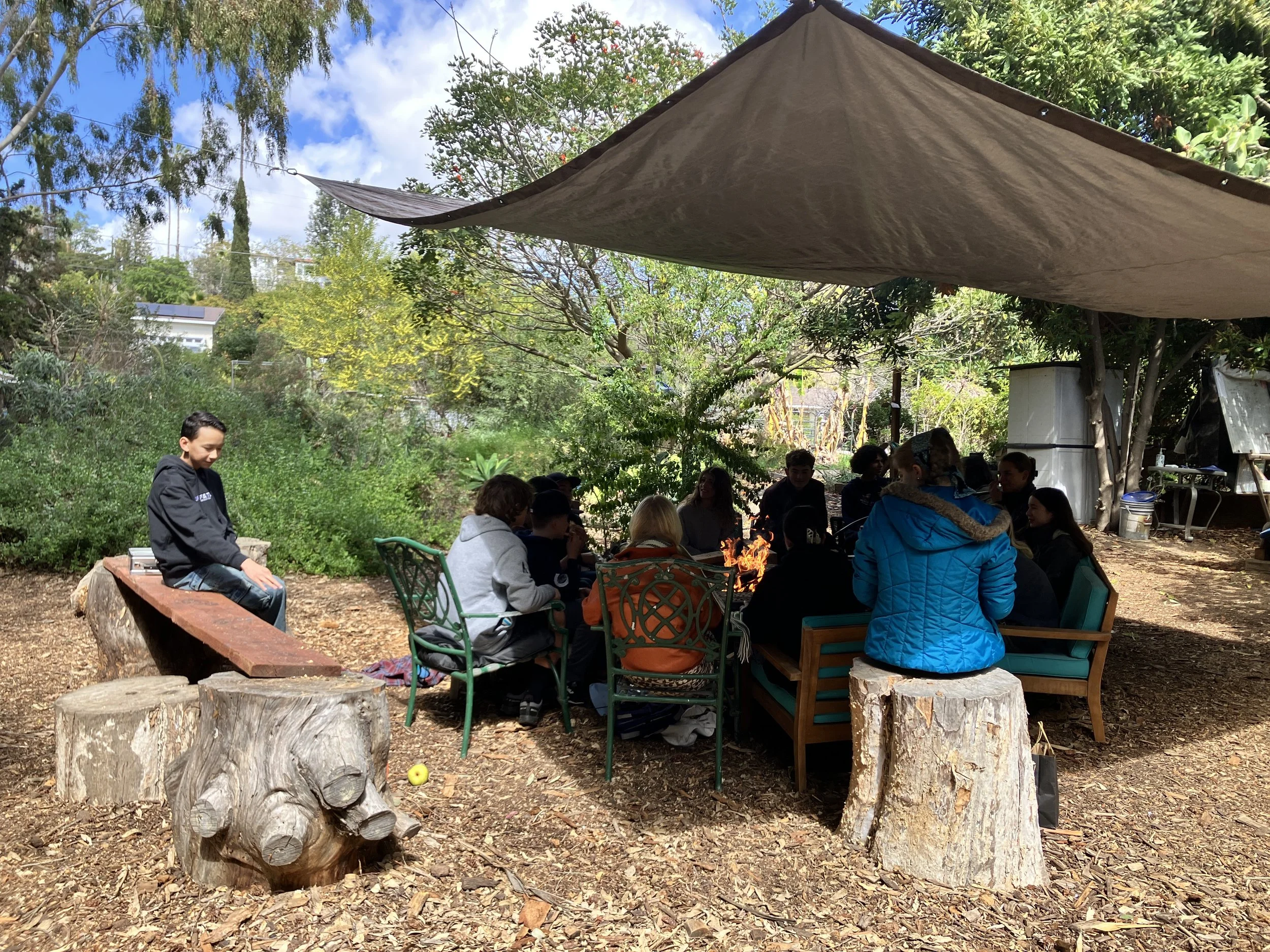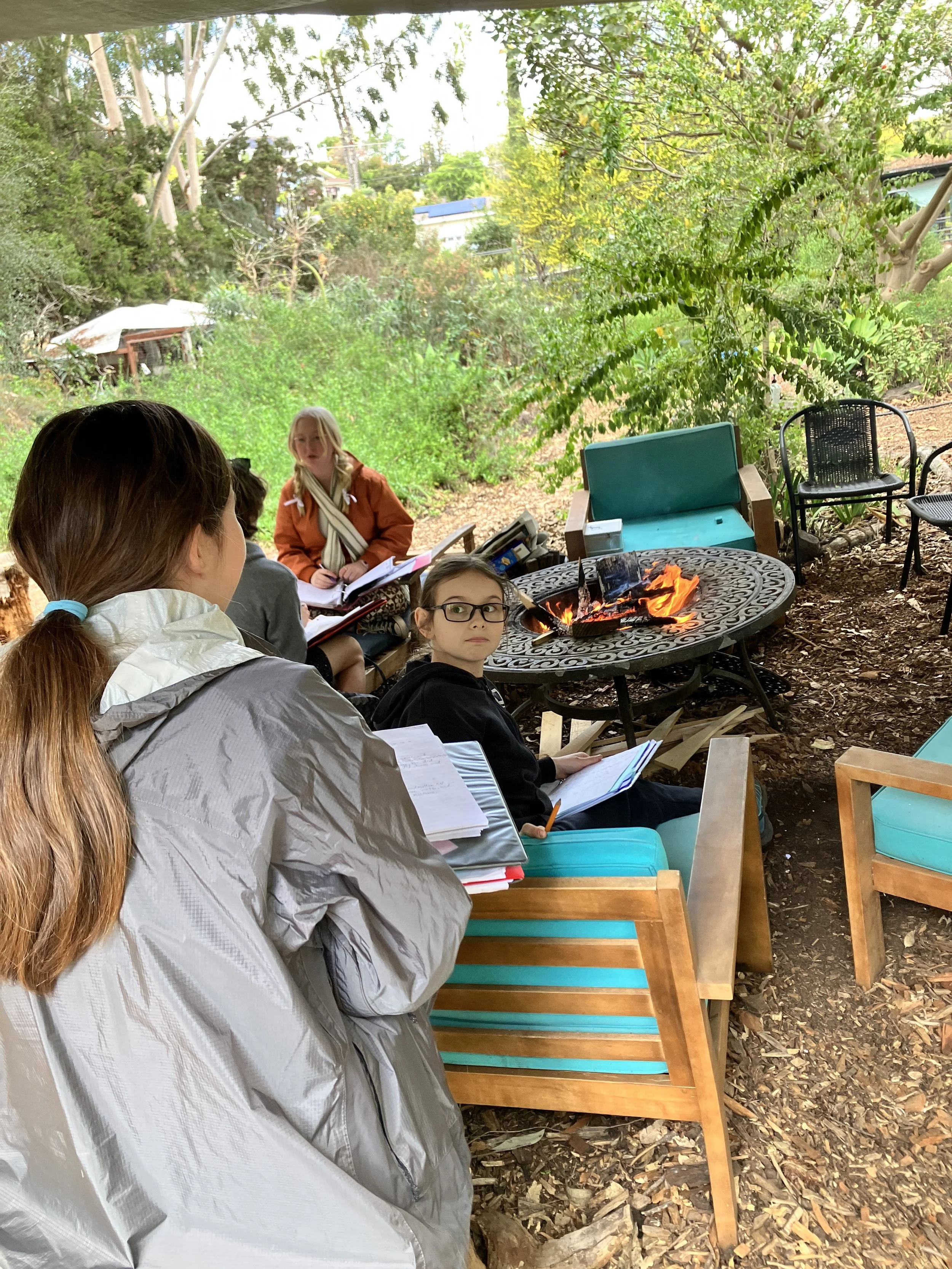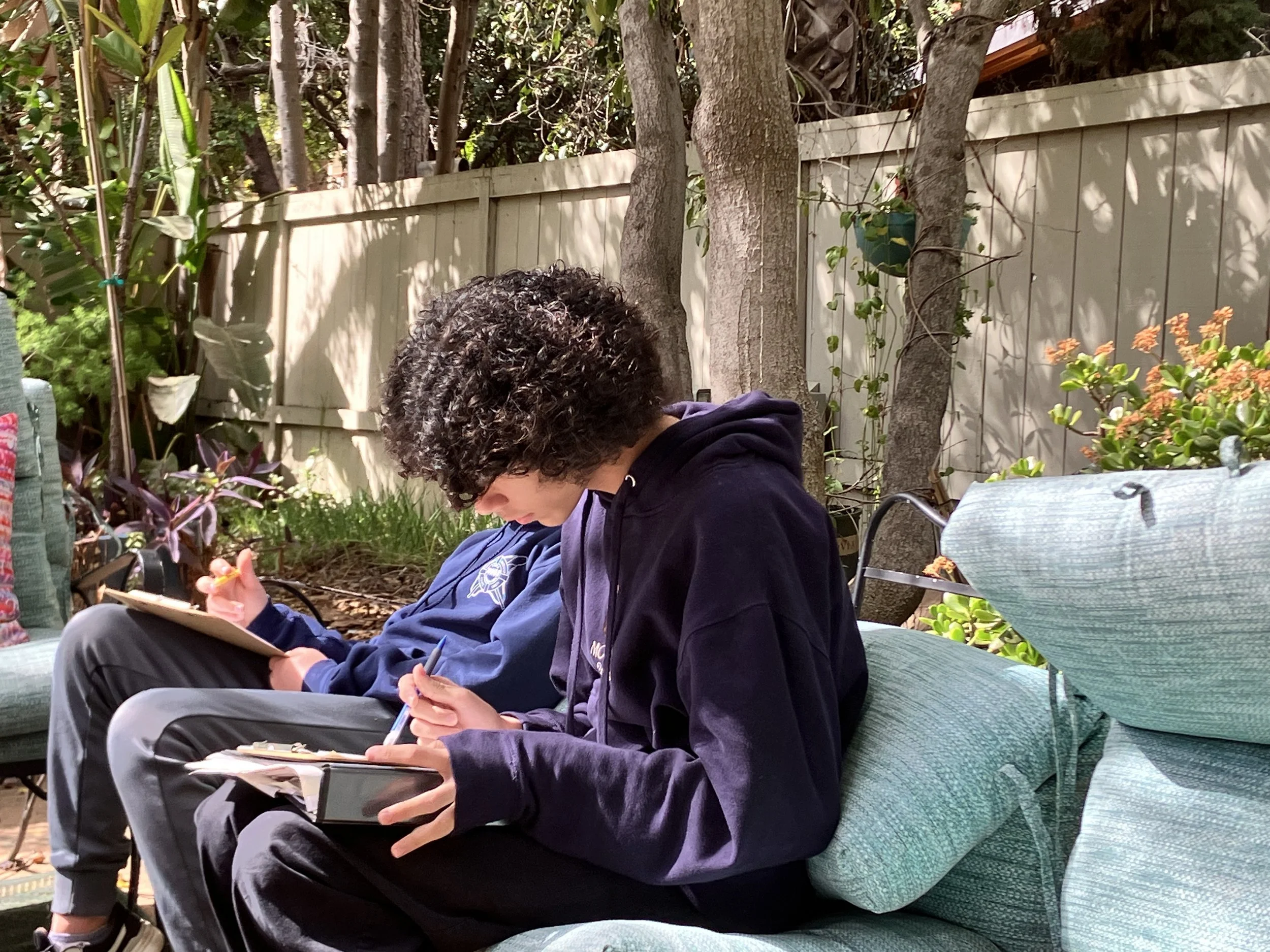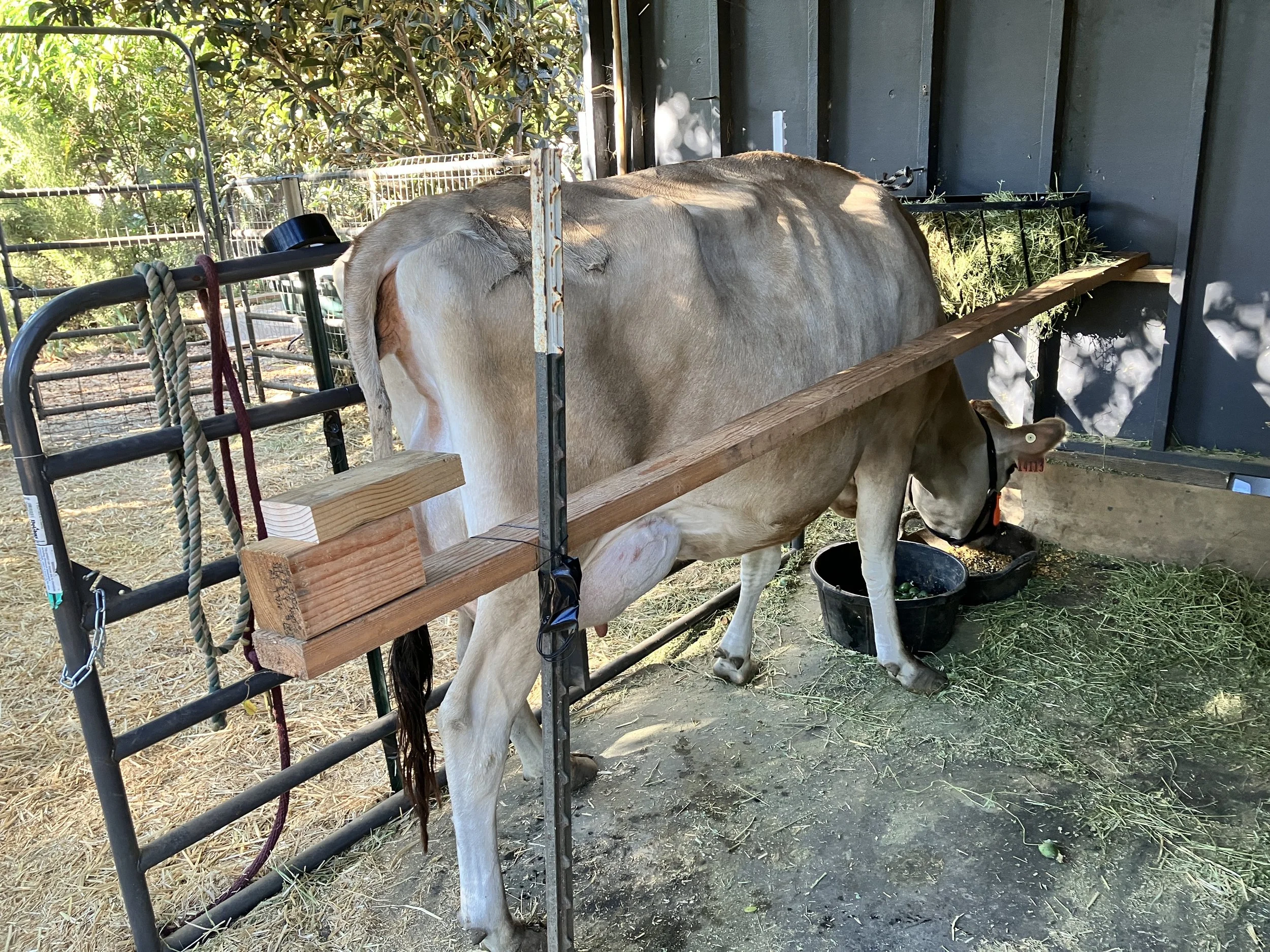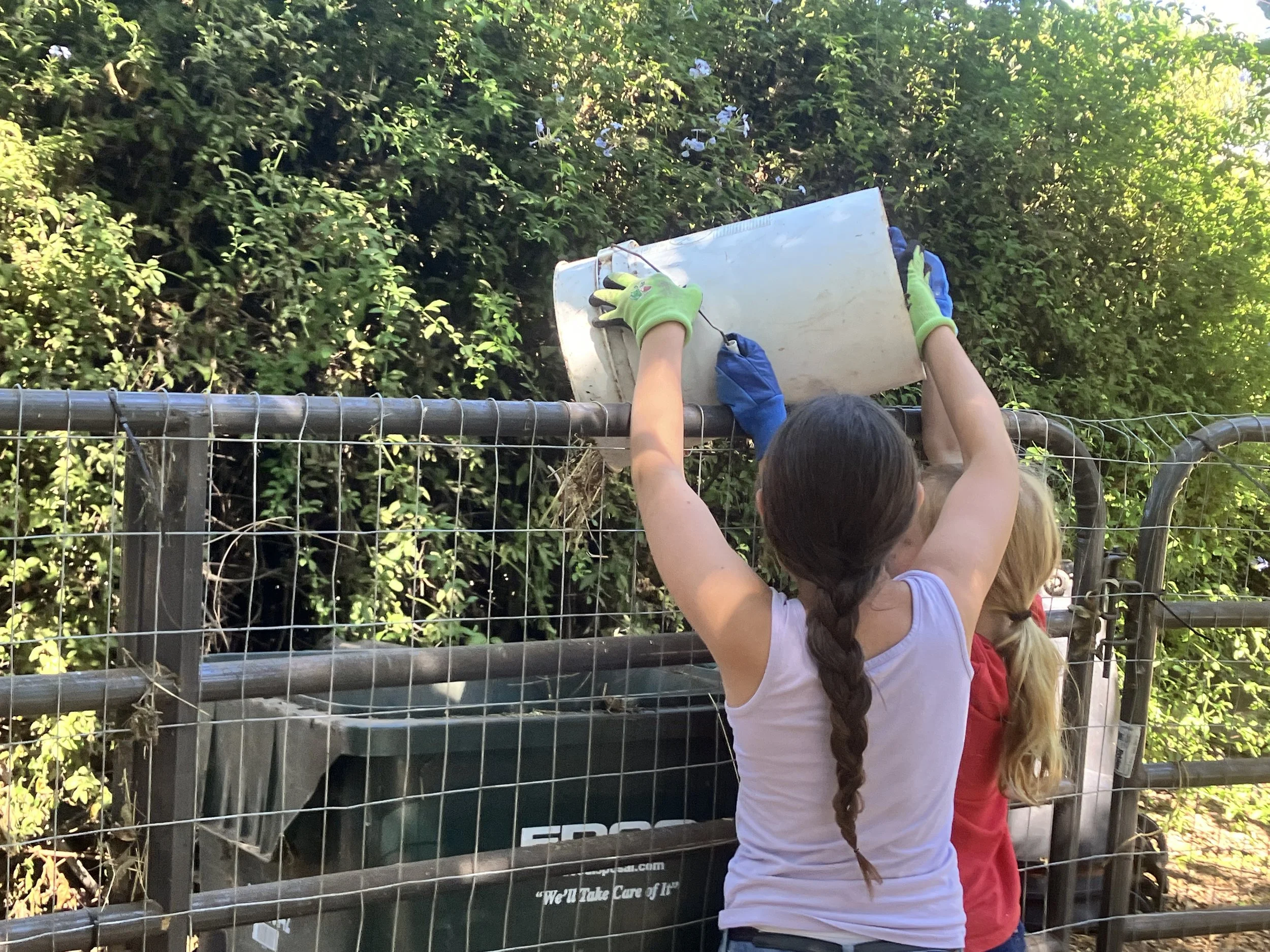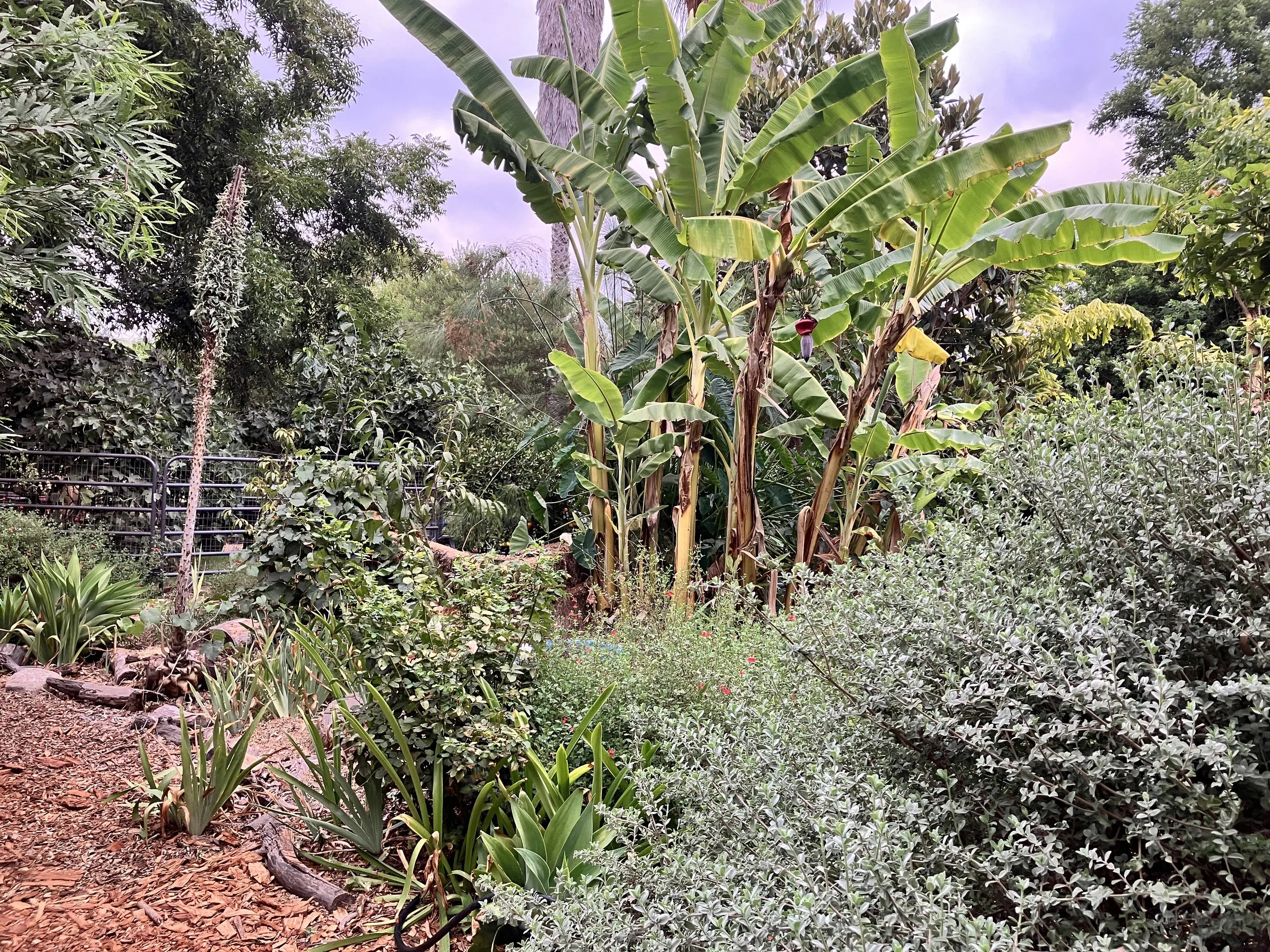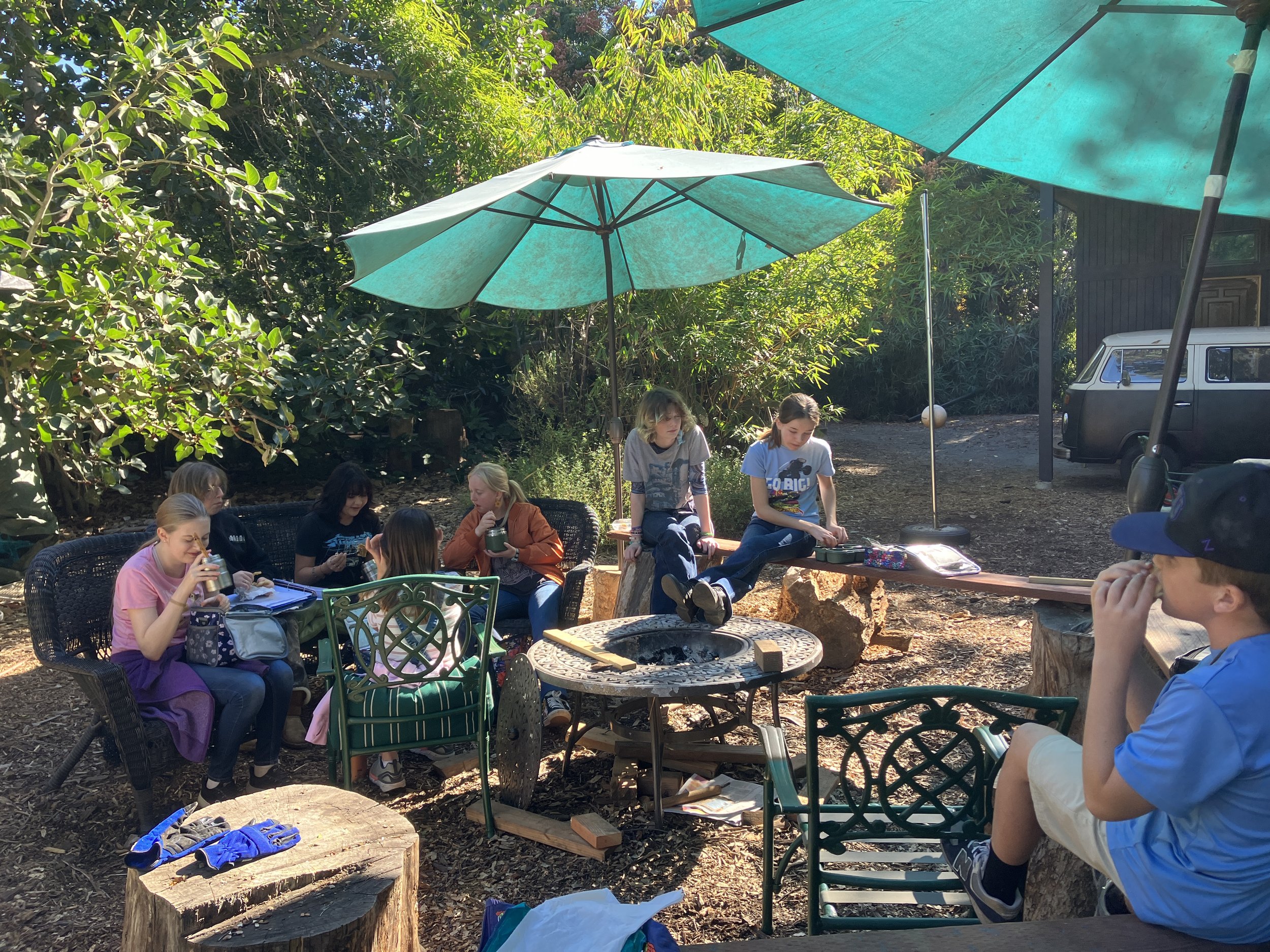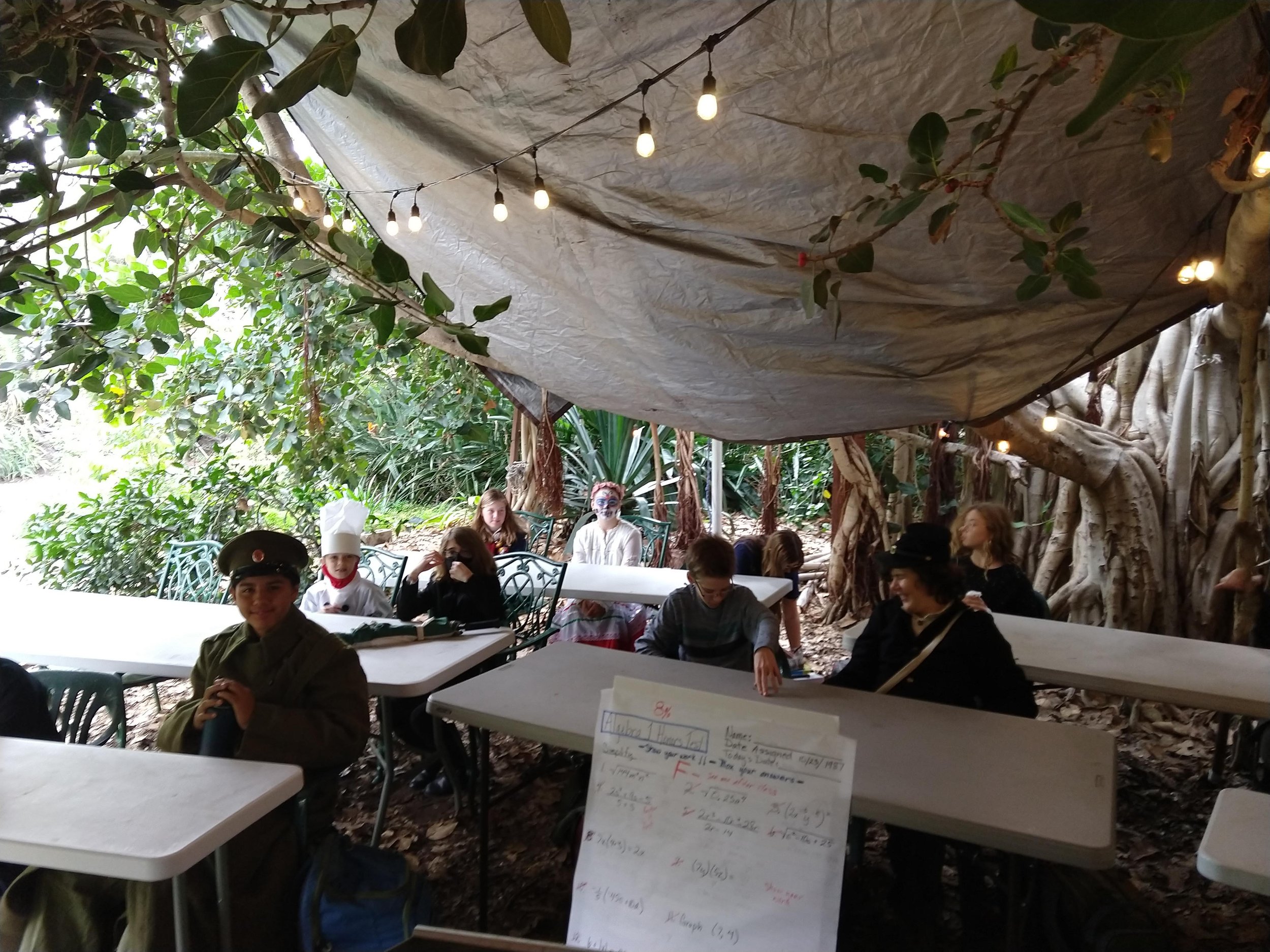
Rigorous academic seminars for homeschool students.
Farm School Origins
My name is Lisa Clark-Burnell and Farm School happens at our micro-farm on Mt. Helix in La Mesa in San Diego County. Here I teach science, language arts, math, seminars for homeschool kids.
I’m a credentialed teacher and I teach the classes here (math, English language arts, and science). In past years I have invited experts to teach additional classes in their area of expertise.
Here’s how Farm School came to be.
A Penchant for Growing Things
When I was a kid, much of the food on our table came from our backyard: the sausage and eggs, the squash and spinach, the strawberry jam and blackberry cobbler. Raising plants and animals is probably what I loved most as a kid. I bred and sold guinea pigs to local pet stores, showed angora rabbits at 4-H shows, trained my pet rooster to ride on the handlebars of my bike, played with Julie the milk goat, rode my pony into the hills at dawn, and shoveled lots and lots of manure. It was a magical childhood.
I grew up, went to college and found something else I loved as much as growing things: teaching kids. Decades later my husband and our kids moved to Mt. Helix in La Mesa, lured by the perfect tree-fort tree and space for an orchard, garden and critters for our kids to raise. Hundreds of trees, vines, and shrubs, and menagerie of creatures soon populated our permaculture food forest.
Nurturing Wonder
Wanting to share the wonder of baby critters and ripe fruit, we began inviting friends over for chess club followed by time to run around, hold a bunny or eat fresh blackberries. And while I was helping kids hold turkey poults or watching peregrine falcons alight in their nest in the palm tree, I’d do my teacher thing — ask kids questions to help them discover something awesome about the creature. Parents began asking me to teach classes here. Then our kids asked too.
Teaching classes here at our micro-farm is a natural outgrowth of what I’ve been doing for years: growing things and teaching kids.
Growing things and teaching kids brings me joy.
How I select which classes to teach each year
What classes I teach each year is driven by three simple factors:
what classes do my own homeschooled children need?
do those needs line up with my expertise?
are parents asking me to offer a class again for younger siblings?
I teach the kinds of classes I want my own kids to have: academically rigorous ones. There is homework in most classes and I encourage kids to stretch academically so they can grow. I ask probing questions, set them difficult learning tasks to accomplish and then support them as they work toward meeting those high standards.
I nurture a community culture that I want my children to experience: one of kindness, wonder, compassion, hard work, energy and connection.
What’s my expertise?
I have BA in Political Science, emphasis in political theory and American government and English Literature from UC Santa Barbara and a teaching credential from San Jose State University with supplemental authorization in Social Studies and Language Arts. I’ve been a college writing tutor, and taught middle school language arts, social studies as well as middle school pre-algebra, and high school and middle school algebra since 1996. I taught at the Menlo School, then Cupertino Union School District, Sunnyvale USD and San Dieguito UHSD. I co-founded Salem Harvest, a non-profit community harvest organization committed to ending hunger (video clip about that organization here). I’m an experienced gardener and micro-farmer.
Drawing upon this professional and personal experience, I teach classes that dovetail with my own kids’ changing academic needs, interests and my expertise.
What’s magical about Farm School?
Kids feel safe and adventurous here
Farm School has a sweet, gentle culture. Inclusiveness and respect are the bedrock of learning. When a child feels emotionally safe, they are ready to grow. I consciously foster a respectful, inclusive, patient learning environment.
And the students at Farm School help me make that happen. These are the kids I want my kids hanging out with— the kind of kids who are kind and welcoming, silly and serious within the same breath, curious and eager to learn. Together, we make Farm School a safe place to stretch.
At Farm School the kid on the spectrum and the kid with amazing social awareness work on a project together. The kid who struggles with dyslexia works with the precocious sixth grader who recites passages from Macbeth. Fifth graders take algebra while tenth graders stick around in the science class because it still feels like a good fit for them. And they don’t bat an eye about those grades/ages which in another setting might be fodder for ridicule or boasts. They laugh and play, chat and joke, and invite new kids to hang out with them. It’s honestly, a wonderful environment to learn in.
I am so grateful to the wonderful parents whose sweet kids make up our classes. They are the magic of Farm School.
The beauty of giant trees and meandering flowering paths
The first thing everyone says when they arrive, is that this doesn’t feel like San Diego. We have over 200 trees on our acre from the towering 80 year-old palms with passion and trumpet vines and wisteria climbing into their crowns to the giant banyan tree at the center of the property.
I’ve spent the last near decade adding nearly 100 fruiting trees and shrubs plus hundreds of native and Mediterranean flowering shrubs. This property feels a world away, nestled into a hidden part of La Mesa- Mt Helix.
All seminars are taught on a shaded acre of orchard, edible and ornamental gardens with recesses for students to interact in unstructured ways so they can make friends.
Our seated work for math seminars are taught primarily in our Farm School Annex. This dedicated classroom space has tables, chairs, audio and visual equipment, giant doors open to the outdoors for ventilation.
All our other seminars’ are taught under the boughs of our banyan tree and across our green acre. Here, a student is listening to a story while perched in the mighty banyan tree.
Who doesn’t want to hold a bunny while making a clay model of an animal cell? Or pet the pigs during recess?
Research demonstrates that being outdoors enables students to focus more readily than being in an indoor classroom. Experiencing the wonder of beautiful natural spaces also calms our bodies and minds. Cuddling a baby bunny definitely puts kids in the mood to learn!
Rain or shine
Seminars at Farm School happen rain or shine. At the first hint of rain in the forecast we build giant rainy-day shelter under the banyan tree. I use a microphone if the pitter-patter of rain drops gets loud! Or we move into our Farm School Annex which is still open to the outdoors. We also take field trips to find the local springs and see our local watershed in action.
(This photo is from Halloween— hence the costumes.)
Cold or Hot
On cold days we bundle up, bring hot chocolate in our thermos, and may build a fire while we work.
On hot days, some kids decide to run through a sprinkler to cool over during recess.
There’s no such thing as bad weather, only bad clothing. — Scandinavian saying.
In a tree or under its boughs
Under the shade of the banyan tree or on the lounge chairs in the sun or next to the miniature cattle, students work together in teams and independently on projects.
Students work independently on a problem set or assignment in the tree fort, or on the trampoline, or on a couch in the courtyard where it’s quiet, or at a table under the banyan tree with a baby bunny in their lap.
Recess: play or chit-chat
Recesses are filled with kids having lunch in the tree fort, playing basketball, tether ball, climbing trees, riding bikes, swinging on the giant swing, inventing their own games and just hanging out together.
These brain and body breaks get our blood moving, rejuvenate us, and provide important unstructured time during which students form friendships and have opportunities to develop socially and emotionally.
